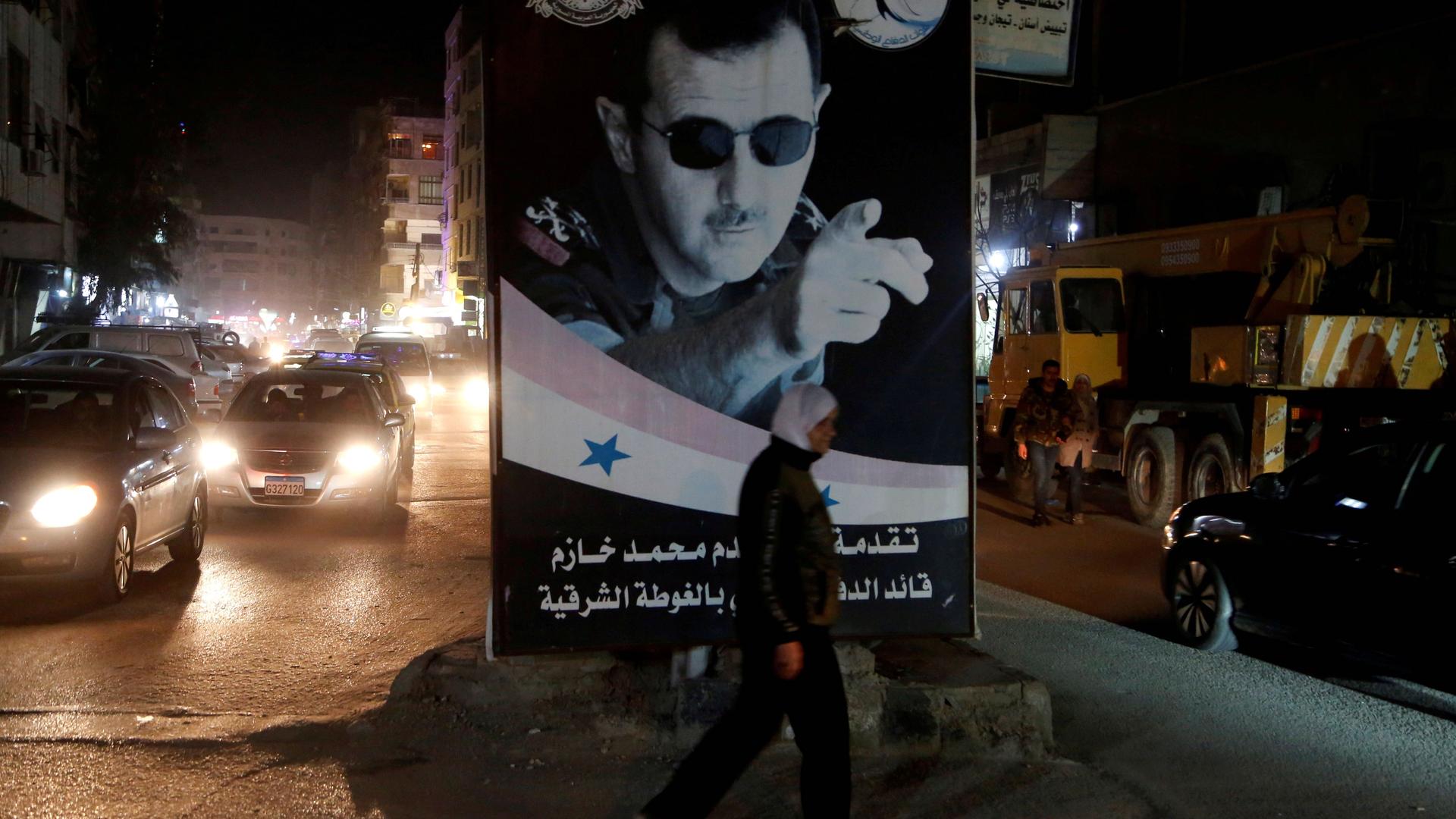US targets Assad govt and backers with toughest sanctions yet against Syria
The US State Department announced this week some of its toughest sanctions yet against Syria.
The sanctions are named “Caesar,” the code name for a former Syrian military officer who smuggled roughly 50,000 images and documents out of Syria’s prisons. The gruesome photos showed emaciated bodies of those detainees — men, women, even children.
“Today, we begin a sustained campaign of sanctions against the Assad regime under the Caesar Act. The individuals and entities targeted today have played a key role in obstructing a peaceful, political solution to the conflict.”
“Today, we begin a sustained campaign of sanctions against the Assad regime under the Caesar Act,” spokeswoman Morgan Ortagus said Wednesday. “The individuals and entities targeted today have played a key role in obstructing a peaceful, political solution to the conflict.”
Related: Syria’s first family is caught in a feud
The images sparked outrage and set off a yearslong effort to introduce additional sanctions on the Syrian leader and his inner circle. President Donald Trump signed the ensuing Caesar Syria Civilian Protection Act into law this past December.
“The sanctions confirm the direction that the State Department is taking,” explained Rime Allaf, a Syrian writer and commentator.
She said American officials have targeted 39 people or entities with ties to the Syrian government.
“Any company, any government, any entity around the world is going to be sanctioned if they deal with the Syrian regime elite who the State Department believes are responsible for committing these atrocities.”
“Any company, any government, any entity around the world is going to be sanctioned if they deal with the Syrian regime elite who the State Department believes are responsible for committing these atrocities,” Allaf said.
Also on the list, for the first time, is Syrian President Bashar al-Assad’s wife, Asma al-Assad.
A State Department press statement said she has been designated because “she has become one of Syria’s most notorious war profiteers.”
Related: Remembering Egyptian LGBTQ activist Sarah Hegazi
Born in the United Kingdom, Asma al-Assad Akhras worked as an investment banker in London until 2000, when she married Bashar al-Assad and moved to Syria.
The new sanctions restrict the first lady’s financial dealings, says Ibrahim Olabi, a Syrian lawyer in the UK.
“So, a lot of third parties would now hesitate to engage with Asma because they could face penalty for dealing with sanctioned individuals,” Olabi said.
The new sanctions take effect at an already difficult time for Syrians. The country’s economy has been hit hard by the war and the coronavirus.
One woman in Damascus told The World that she has stopped buying pricier food items like meat. She only buys the essentials now. The woman didn’t want to be identified because she worried she might lose her job for speaking to foreign media.
“Everything is so much more expensive these days. We feel insecure so we are not sure next month or the month later what we’re going to face.”
“Everything is so much more expensive these days,” she said. “We feel insecure so we are not sure next month or the month later what we’re going to face.”
Related: Afghans in shock after attacks on a maternity hospital and a funeral
Lately, she said, she has noticed longer lines at the market for subsidized goods like rice and sugar.
“We are considering everything else as [a] luxury,” she said.
And with the new US sanctions, she expects the economy to get worse.
“Although we know that the effects won’t be seen suddenly in a few days, we are expecting that the upcoming months would be harder and harder,” she said.
There are already frustrations with the state of the economy. Last weekend, Syrians came out to protest — even in areas usually supportive of the president.
Critics of the Caesar Act say sanctions will only hurt the people.
Related: Syrian officials on trial for war crimes in Germany
“I would be lying if I said there won’t be any impact on regular, average Syrian civilians.”
“I would be lying if I said there won’t be any impact on regular, average Syrian civilians,” said Jomana Qaddour, a nonresident senior fellow at the Atlantic Council in Washington, DC.
“But I think that there are some robust humanitarian exceptions that explicitly discuss food, medicine, and on top of that there’s a lot of civil society organizations that will be monitoring the impact of Caesar,” she said.
Qaddour, who has family in Syria, hopes that the sanctions eventually bring the Syrian government to the negotiating table.
“The hope of these sanctions was that … listen, clearly, [the] military threat hasn’t worked. Upwards of a million people being killed hasn’t worked. Creating half of Syria as a refugee population outside of the country hasn’t worked. Maybe economic pressures might do the trick,” Qaddour said.
For the sanctions to be lifted, the Syrian government will have to fulfill six major demands. Among them, it has to end the bombing of civilians, release tens of thousands of detainees and allow Syrian refugees to return safely to their country.
